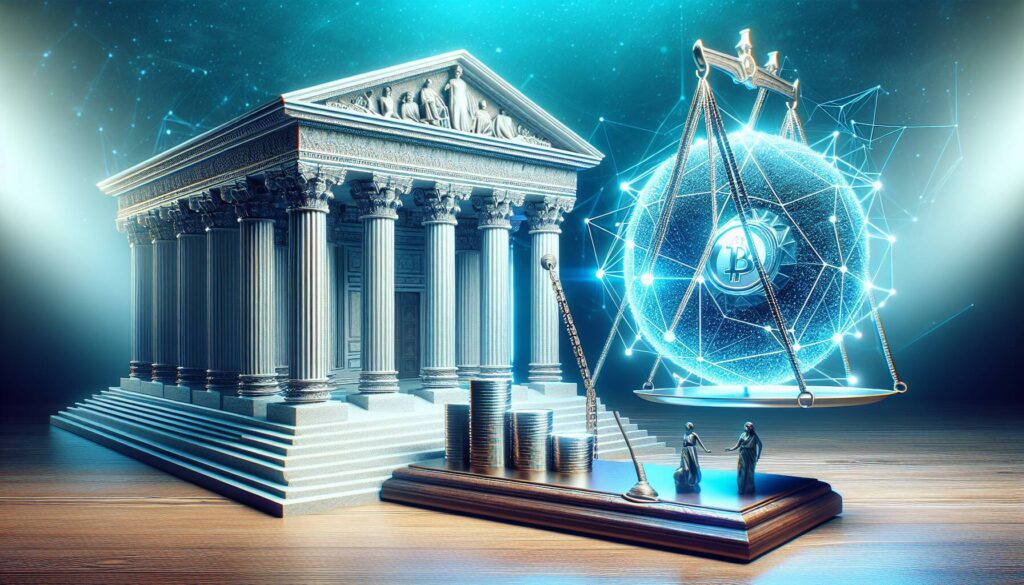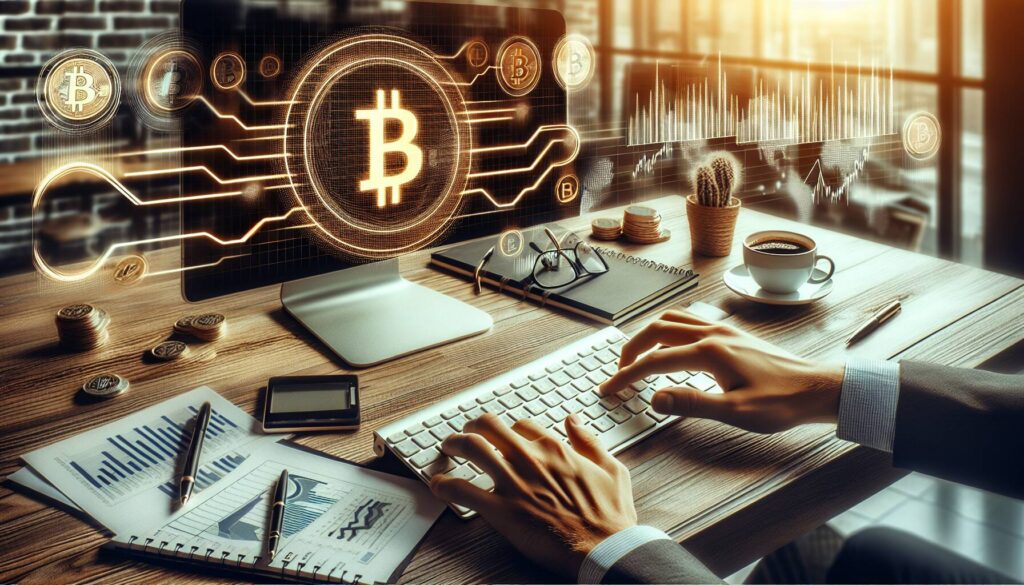A decade ago, Bitcoin was often seen as a mere curiosity, akin to the internet in its infancy. Fast forward to today, and cryptocurrency, especially Bitcoin, is not just a passing trend but a pivotal part of the economic discourse in the United States. With Bitcoin now accessible through retirement accounts and the establishment of a Strategic Bitcoin Reserve, it’s clear that this digital currency has captured the attention of lawmakers and investors alike.
The rise of Bitcoin reflects a broader movement towards decentralized systems, as trust in traditional financial institutions continues to wane. This sentiment is echoed in the rise of decentralized artificial intelligence (deAI), which seeks to address growing public concerns about data privacy and control. A recent Harris poll revealed that a significant majority of Americans feel uneasy about the concentration of AI power among a few corporate giants and prefer more decentralized solutions that prioritize transparency and user empowerment.
As individuals increasingly express their desire for innovation and security within AI, it becomes imperative for policymakers to recognize the structural implications of centralized versus decentralized frameworks. Ensuring that AI does not simply replicate the monopolistic tendencies of existing tech giants is crucial for fostering public trust and driving the future of this technology. The trajectory of decentralized AI could significantly reshape our digital landscape, offering a powerful alternative that prioritizes collective benefit over corporate profit.
“Decentralized AI is not a fringe concept; it’s emerging as the backbone of a more democratic and innovative technological future.”

Decentralized AI: The Future of Innovation and Trust
Key points regarding the rise and implications of decentralized AI in today’s economy:
- Bitcoin’s Evolution:
Transitioned from a niche technology to a significant economic pillar.
- Public Trust Issues:
Declining trust in traditional finance parallels concerns about AI control.
- Decentralization as a Solution:
Decentralization rebuilds trust by eliminating biased intermediaries.
- Rise of Decentralized AI (deAI):
- Empowers users instead of corporations.
- Facilitates open access to AI resources and encourages innovation.
- Utilizes blockchain for transparent coordination and merit-based rewards.
- Public Sentiment Favoring deAI:
High percentages of Americans support decentralized AI for its innovation and data protection.
- Need for Policy Shift:
Regulations must prioritize open ecosystems and innovation to support decentralized technologies.
- Decentralized AI as Fundamental:
Presents a path toward a competitive and fair digital landscape.
Decentralized AI is positioned to reshape the digital future mirroring Bitcoin’s journey to mainstream acceptance.
The Rise of Decentralized AI: A Comparative Analysis
The evolution of decentralized technologies parallels the trajectory of Bitcoin, and as this new wave of innovation gains momentum, it’s essential to dissect its competitive advantages and potential challenges. Decentralized AI (deAI) models like Bittensor are emerging as frontrunners in the quest for transparency and user empowerment, in contrast to the opaque mechanisms of traditional centralized AI systems dominated by tech giants.
Competitive Advantages: The most striking advantage deAI offers is the democratization of technology. With a model that prioritizes open access, it allows individual developers, students, and startups to contribute without facing barriers erect by corporations. This fosters innovation and creativity, enabling a broader range of solutions to emerge. According to recent polls, a significant majority of the public, 75%, believes that decentralized AI boosts innovation, indicating a strong demand for alternatives to mainstream AI solutions. Furthermore, with 71% expressing concerns over data security, decentralized networks provide a sense of safety, assuring users that they are in control of their information.
Challenges and Disadvantages: However, the road ahead is not without obstacles. While public sentiment leans heavily towards favoring decentralized frameworks, there’s a notable gap in regulatory understanding, which could hinder progress. Policymakers are still grappling with the implications of infrastructure on trust, often neglecting to prioritize technological ecosystems conducive to innovation. A delay in regulatory clarity might stifle the growth of decentralized systems as companies operate in uncertain legal environments.
Beneficiaries and Those at Risk: The rise of deAI could fundamentally benefit a diverse array of users, particularly those who have historically been marginalized in traditional tech environments. Emerging developers, small businesses, and the ever-growing community of privacy-conscious individuals stand to gain the most from the transparency and fairness associated with decentralized models. Conversely, established tech giants may experience challenges as their monopolistic approaches are increasingly scrutinized, potentially leading to a significant shift in market dynamics. This paradigm shift places pressure on legislators to adapt and support decentralized approaches, or risk facing backlash from a public yearning for genuine innovation and accountability.

















